Table of Contents
Up to 60% off on Home Cleaning
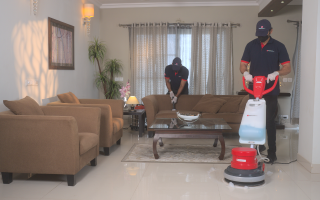
Full House Cleaning - Starts from ₹ 2,129
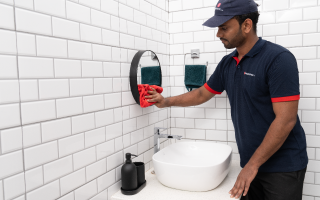
Bathroom Cleaning - Starts from ₹ 359
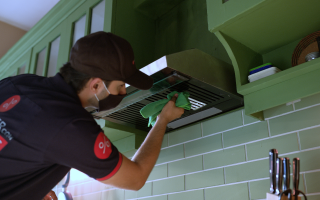
Kitchen Cleaning - Starts from ₹ 999
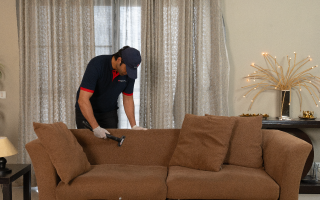
Sofa Cleaning - Starts from ₹ 359
Loved what you read? Share it with others!
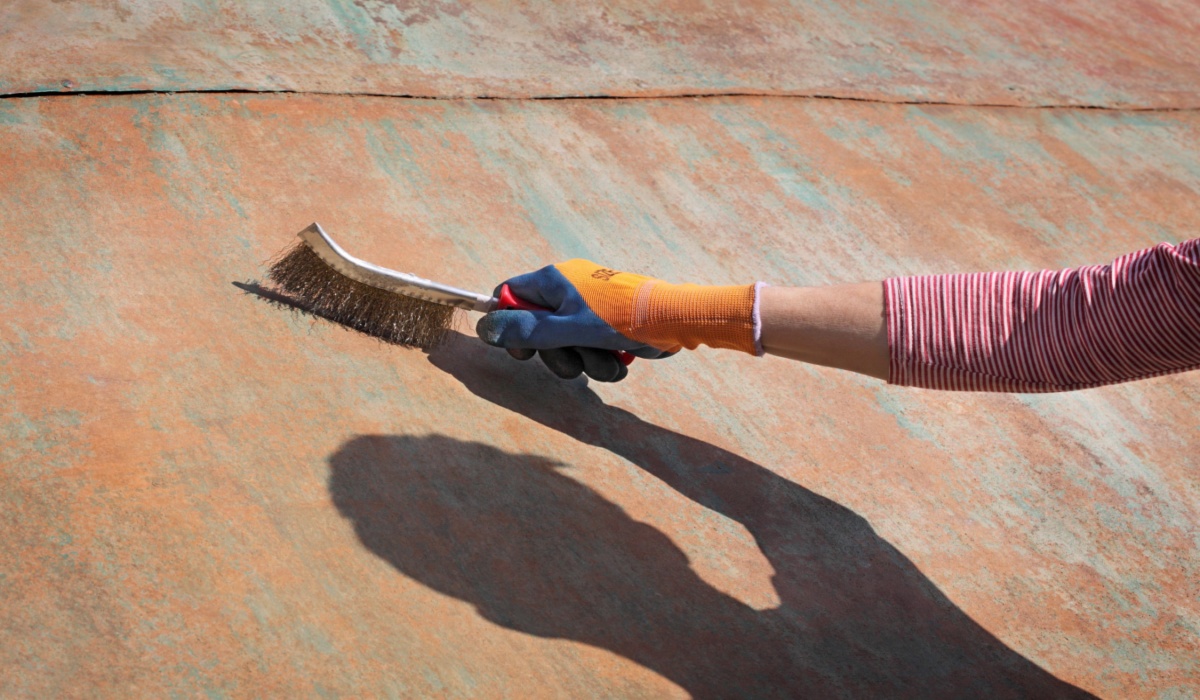

Submit the Form to Unlock the Best Deals Today
Check Your Eligibility Instantly

Experience The NoBrokerHood Difference!
Set up a demo for the entire community

Tenant Super Relax Plan
Enjoy Hassle-Free Renting
 Full RM + FRM support
Full RM + FRM support Instant alerts & premium filters
Instant alerts & premium filters Rent negotiation & relocation help
Rent negotiation & relocation helpHow to Remove Rust from Iron: Step-by-Step Guide for Restoring Your Iron Items in 2025
Table of Contents
When you spot that reddish-brown flake on your iron belongings, it's the rust saying hello. But Rust isn't a welcome guest. It can eat away at your metal items, making them weak and worn out. That's why knowing how to clean it off is important. In this guide, we'll show you how to remove rust from iron using easy, everyday methods. We'll cover everything from simple kitchen staples to more thorough cleaning tactics. And the best part? You don't need any specialised equipment.

Understanding Rust: The Iron Nemesis
Iron rusts due to a reaction with oxygen and moisture in the environment, known as oxidation. Iron forms iron oxide, commonly known as rust, when it comes into contact with water and oxygen. This chemical reaction occurs because iron seeks to return to its natural, more stable mineral state.
Different types of rust can appear on metal surfaces. For example, uniform rust covers large areas evenly, pitting corrosion creates small holes, and galvanic corrosion occurs when iron is in contact with a more noble metal in an electrolyte like saltwater.
Up to 60% off on Home Cleaning

Full House Cleaning - Starts from ₹ 2,129

Bathroom Cleaning - Starts from ₹ 359

Kitchen Cleaning - Starts from ₹ 999

Sofa Cleaning - Starts from ₹ 359
Over time, rust can significantly damage iron and metal items. It weakens the metal, making it brittle and crumbly. This degradation can lead to structural failure in buildings and bridges or breakage in everyday items like tools and vehicles. Preventing rust is crucial to preserve the integrity and longevity of iron and metal objects.
10 Ways to Remove Rust from Iron
Know effective methods to eliminate rust from iron surfaces through this comprehensive guide. Whether dealing with light surface rust or severe corrosion, learn both chemical and natural techniques to restore your metal items. This step-by-step process ensures proper cleaning, treatment, and long-term protection of your valuable iron pieces.
Step 1: Safety Preparation
Before starting the rust removal process, wear protective rubber gloves, safety goggles, and a dust mask. Work in a well-ventilated area to avoid inhaling harmful particles and chemical fumes. Keep cleaning supplies and tools within reach.
Step 2: Initial Assessment
Scrutinize the rusted iron surface to determine the extent of rust damage. Look for deep pitting, flaking, or structural weakness. This assessment will help you choose the most appropriate removal method and estimate the required effort.
Step 3: Surface Cleaning
Remove loose debris, dirt, and flaking rust using a wire brush or steel wool. Wipe the surface with a clean cloth soaked in mineral spirits to eliminate grease and oil residues, ensuring better contact with rust removal agents.
Step 4: Mechanical Removal
To remove heavy rust deposits, use a wire brush attachment on a power drill or angle grinder. Work in circular motions, applying steady pressure but avoiding excessive force that might damage the underlying metal surface. Clean periodically with compressed air.
Step 5: Chemical Treatment
Apply a commercial rust converter or removal solution generously to the affected areas. These products typically contain phosphoric or oxalic acid, which chemically converts rust into a stable compound. Let it sit according to product instructions.
Step 6: Natural Alternatives
Create a paste using equal parts lemon juice and baking soda for mild rust. Apply the mixture to rusted areas and let it sit for 30 minutes. Soaking white vinegar can also effectively dissolve rust deposits.
Step 7: Scrubbing and Neutralizing
After chemical treatment, scrub the surface with a nylon brush or abrasive pad to remove converted rust. Then, wash thoroughly with baking soda and water to neutralize any remaining acid.
Step 8: Final Cleaning
Thoroughly clean the treated surface with clean water and dry completely using clean cloths or compressed air. Any remaining moisture can lead to new rust formation, so ensure the metal is completely dry.
Step 9: Surface Protection
Apply a rust-inhibiting primer specifically designed for metal surfaces. Once dry, follow with a protective coating of oil-based paint or specialized metal sealant to prevent future rust formation.
Step 10: Maintenance Plan
Establish a regular inspection and maintenance schedule. Keep the iron surface clean and dry, touch up any paint damage promptly, and apply protective oil or wax coating periodically in high-humidity environments.
Recommended Reading
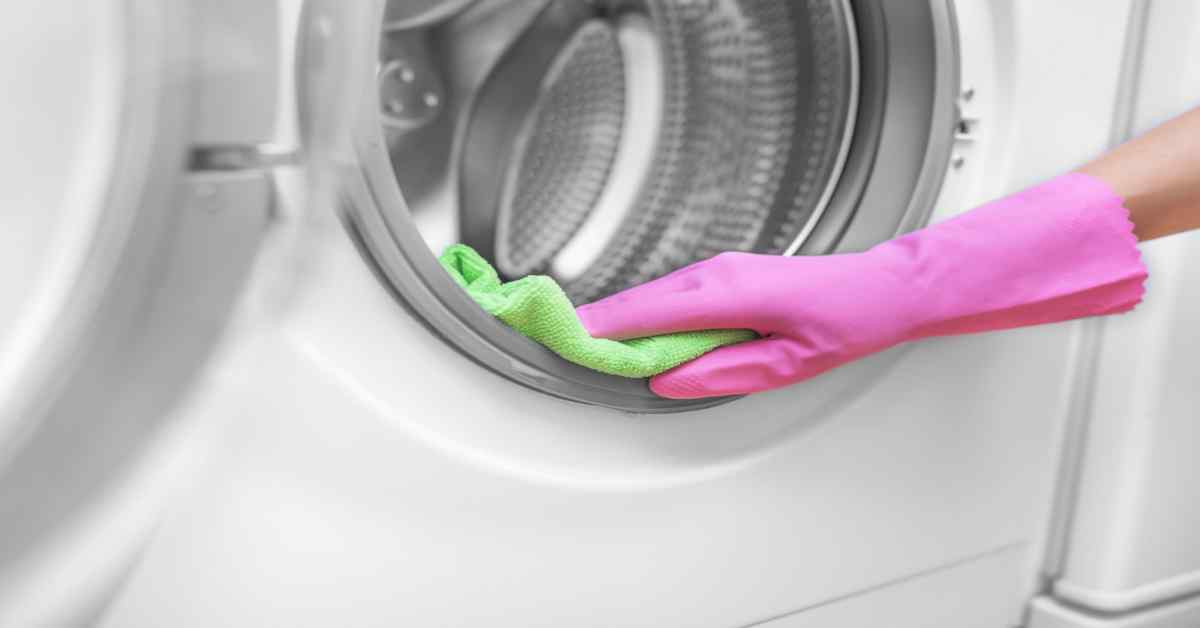
Deep Clean Your Washing Machine: Step-by-Step Guide & Tips
January 31, 2025
15581+ views
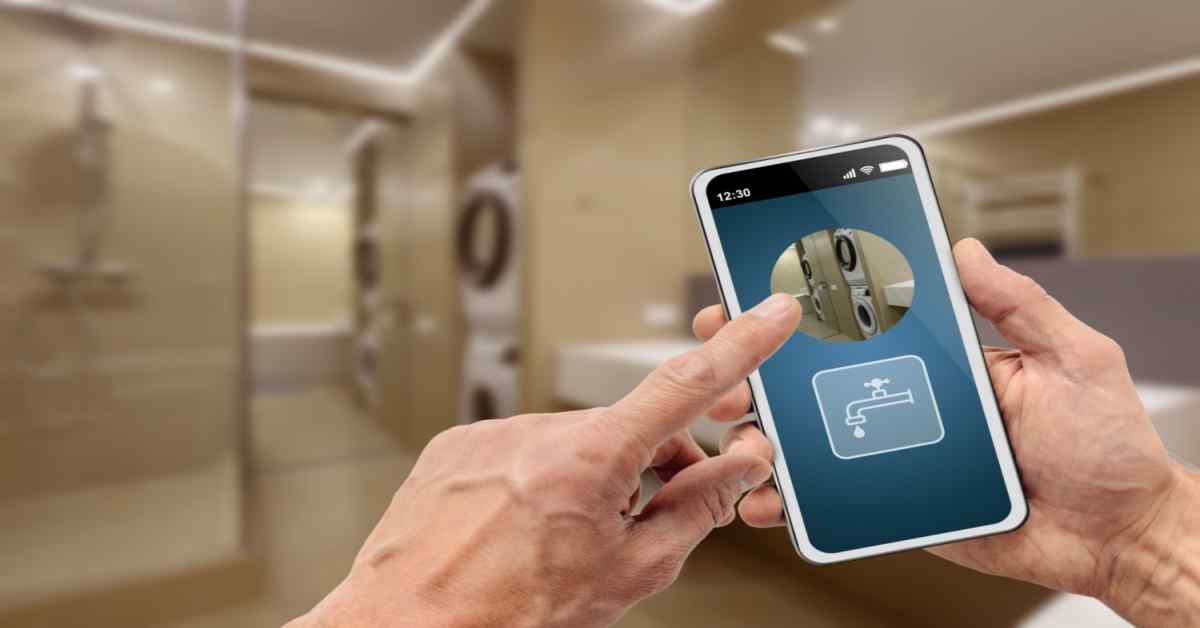
Top 10 Plumbing Service Apps in 2025
January 31, 2025
9860+ views

How to Remove Rust from Iron: Step-by-Step Guide for Restoring Your Iron Items in 2025
January 31, 2025
5820+ views
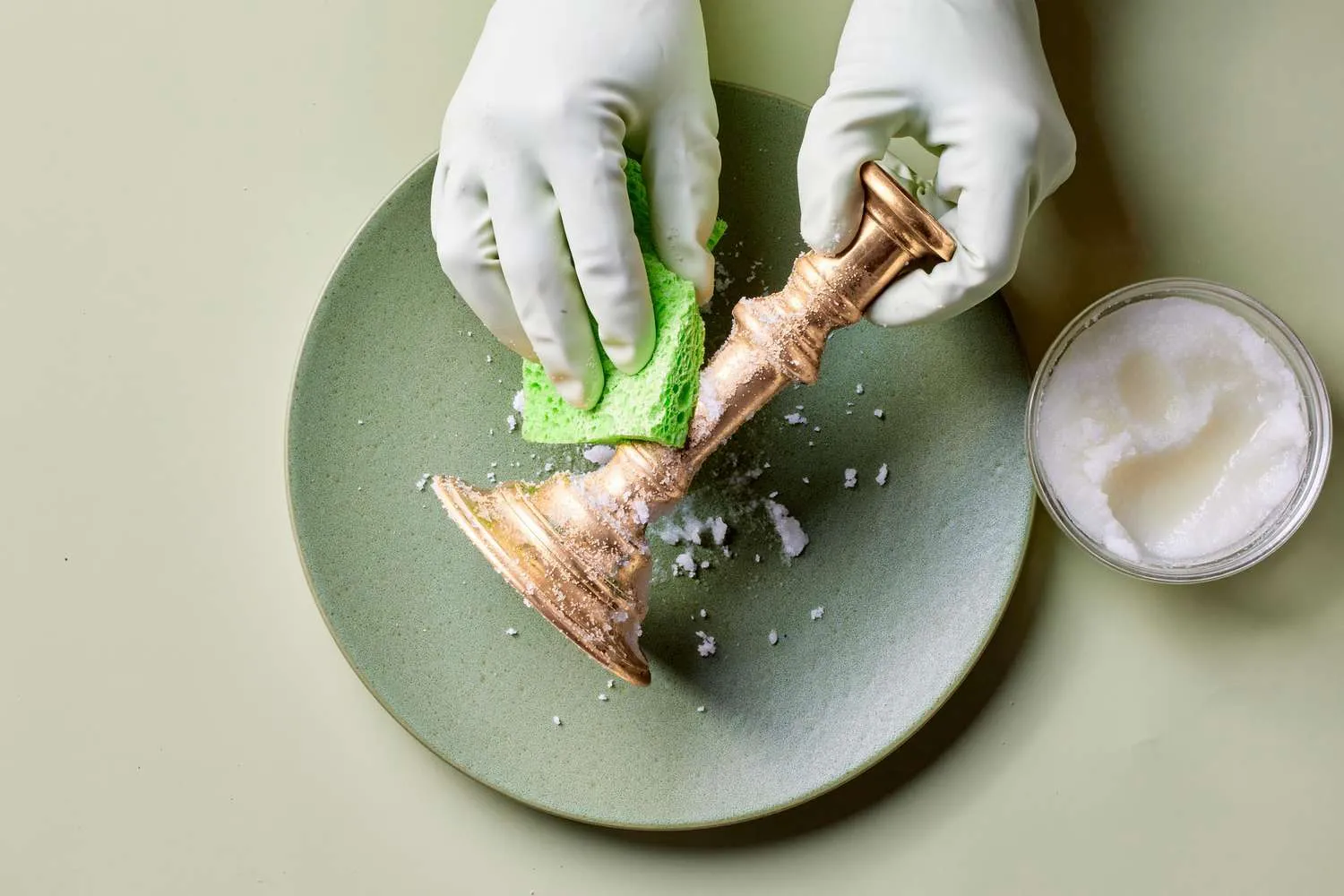
How to Clean Brass Items Simple Steps for Shine and Remove Tarnish in 2025
January 31, 2025
5489+ views

Garage Cleaning Guide: Method, Tips and Tricks
January 31, 2025
4730+ views
DIY Rust Removal Techniques at Home
Learn easy and effective DIY rust removal techniques at home. Using common household items like vinegar, baking soda, and lemon juice, you can safely eliminate rust from tools and furniture, restoring their appearance and extending their life.
1. Vinegar Dissolution
Vinegar, a staple in many kitchens, contains acetic acid, which can help dissolve rust.
- Submerge the rusty item in vinegar and leave it to soak.
- The duration of the soak depends on the severity of the rust, but it could range from a few hours to overnight.
- After soaking, scrubbing the item with a brush can help remove any remaining rust.
2. Baking Soda and Lemon Juice
Baking soda is a mild abrasive. Due to its citric acid content, it forms a potent rust-cleaning solution when mixed with lemon juice.
- Mix baking soda with lemon juice and apply a paste to the rusted area.
- Let it sit for a few hours, then scrub it off with a brush.
3. Potatoes and Dish Soap
Potatoes contain oxalic acid, which is effective against rust.
- Slice a potato in half and apply dishwashing liquid to the exposed surface.
- Use this as a scrubber on the rust.
- The dish soap helps to reduce friction and allows the potato to slide over the surface, while the oxalic acid works on the rust.
- Replace the potato as it wears down for best results.
4. Aluminium Foil and Water
Aluminium foil can be used with water to scrub away rust.
- Crumple a piece of foil into a ball, dip it in water, and scrub the rusted area with it.
- The foil is soft enough not to scratch but hard enough to scrape off the rust.
- The chemical reaction between the aluminium and rust also helps to speed up the cleaning process.
Commercial Rust Cleaning Chemicals vs. Natural Solution
Choosing between commercial rust cleaning chemicals and DIY solutions often depends on the severity of the rust, the type of item you're cleaning, and personal preferences regarding chemical use. Commercial rust removers are typically more potent and can tackle severe rusting quickly, but may contain harsh chemicals that could harm the user or the environment.
| Aspect | Commercial Rust Cleaning Chemicals | Natural Solutions |
| Effectiveness | Typically very effective at removing rust quickly. | May be less effective and require more time or elbow grease. |
| Cost | Can be more expensive upfront. | Usually cheaper and ingredients are often already available at home. |
| Availability | Readily available in stores but may require a trip to purchase. | Ingredients for natural solutions can often be found at home or bought easily. |
| Safety | May contain harsh chemicals that can be harmful if mishandled. | Generally safer to use, with less risk of burns or poisoning. |
| Environmental Impact | Often includes chemicals that can be hazardous to the environment. | More environmentally friendly, biodegradable, and non-toxic. |
| Ease of Use | Easy to apply but may require safety precautions. | Easy to apply with minimal safety concerns. |
| Storage and Disposal | May require special storage and disposal methods due to hazardous materials. | Simple disposal and no special storage needed. |
| Application | Often requires gloves and sometimes a mask. | Usually safe to use without protective gear. |
| Odour | Chemicals often have a strong, unpleasant odour. | Natural solutions often have a more pleasant or neutral odour. |
When to Choose Rust Cleaning Chemicals Over DIY Solutions
Commercial chemicals are best reserved for heavy-duty rust removal. They can penetrate deep rust, are time-efficient, and require less elbow grease. However, they might not be suitable for antique or delicate metals where a gentler approach is needed to preserve the item's integrity.
The Debate: Chemical Rust Removers vs. Natural Remedies in Terms of Cost and Convenience
Regarding cost, DIY natural solutions are often cheaper using household items. They are also readily available and can be safer to handle. On the convenience front, while commercial rust removers offer quick action, they may not be as readily available as natural ingredients and require a trip to the store, along with the above safety precautions.
Preventing Rust: Protection and Care for Iron and Metal
Preventing rust involves regular maintenance and keeping metal surfaces dry and clean. Inspecting metal items regularly for signs of rust and addressing any issues promptly is important. This can include cleaning off any dirt or grime that could hold moisture against the metal and ensuring that metal items are stored in a dry environment.
- Painting: Apply a fresh coat of paint to iron surfaces. Ensure that the surface is clean and rust-free before painting. Special rust-inhibiting paints are available that can provide even better protection.
- Oiling: Regularly apply a light layer of oil to iron tools or surfaces. This is particularly effective for items used and stored outdoors, like garden tools.
- Waxing: Apply a coat of protective wax to provide a moisture barrier. This method is especially useful for decorative iron items.
- Keep Dry: Ensure iron items are kept dry. Wipe down any wet surfaces, and ensure rooms with iron fixtures, like bathrooms, are well-ventilated.
- Use of Silica Gel Packs: Place silica gel packs in storage areas where iron items are kept. These will absorb moisture from the air and help to keep the environment dry.
- Regular Cleaning: Clean iron surfaces regularly to remove dust and grime, which can trap moisture. For kitchen items like cast iron pans, avoid leaving them in water, and always dry them thoroughly after washing.
- Coasters and Pads: Use coasters under metal containers or pads under iron furniture to prevent rust rings on surfaces, especially in damp areas.
- Proper Storage: Store iron tools and objects in a dry place. Use hooks or shelves to keep them off the floor where they could be exposed to more dampness.
- Rust-Resistant Primers: Before painting, apply a rust-resistant primer to the iron. This will help seal the metal from moisture and air.
- Sealants: After the iron is painted, apply a sealant. Sealants provide a clear, protective layer over the paint to enhance moisture resistance.
How Can NoBroker Help?
Watching your cherished iron belongings surrender to rust can be disheartening. It's like seeing a piece of your home slowly crumble away. At NoBroker, we understand this pain and have the right solutions to halt the rust in its tracks.
Through NoBroker Cleaning Services, you can easily connect with skilled professionals specialising in rust removal, ensuring your property is safe. Our professionals will assess the extent of the rust damage and recommend the best treatment. They will then use advanced techniques and rust-removal products to restore your iron belongings to their former glory.
NoBroker Easy Cleaning Tips Testimonials
Very good service.
The team responded promptly to queries and concerns.
NoBroker Cleaning offered excellent value for the quality of service provided.
NoBroker Cleaning is a reliable service, ensuring high-standard cleaning.
NoBroker Cleaning offered convenient scheduling options, making it easy to book.
Their deep cleaning service was impressive, tackling tough stains and dirt.
The service ensured my home was clean and hygienic, providing a healthy environment.
NoBroker Cleaning's customer service was prompt and responsive.
Wow
Great value for money, highly recommended.
Loved the smooth texture and colors.
NoBroker Painters and Movers provided exceptional service that exceeded my expectations.
Good service providers. I guess they are best in my view.
The painting service was flawless, with excellent results that transformed my space.
My goods were delivered on time, as promised, with careful handling.
NoBroker Movers made my relocation stress-free and seamless.
The service was reliable, with attention to detail and a commitment to quality.
My goods were delivered on time, as promised, with careful handling.
The customer support team was responsive, friendly, and helpful.
NoBroker Movers provided a smooth and stress-free relocation experience.
Great value for money with efficient and effective service.
Trustworthy and reliable service, highly recommended.
Professional cleaning service with excellent results.
Home was left clean and tidy, excellent service.
Nice ☺️☺️
Im using their Bathroom subscription plan from past 2 years and their services are very good.
Booked full house cleaning for Ugadi, they were on time and completed work very neatly Highly recommended !!
Professional and hustle free services
Took full home cleaning. They did an amazing job!
Best cleaning service by nb. Would recommend others too
I recently used NoBroker Cleaning Services for a deep house cleaning, and I am quite satisfied with the experience. The booking process was smooth and hassle-free, and the team arrived on time as scheduled. The cleaning professionals were thorough and well-equipped, ensuring every corner of the house was properly cleaned. They paid attention to details, including dusting, mopping, and scrubbing hard-to-reach areas. My kitchen and bathrooms, in particular, were cleaned to a high standard, leaving them spotless and fresh. Overall, NoBroker Cleaning Services provided good value for money, and I would recommend them to anyone looking for a reliable and convenient cleaning service.
Had a fantastic experience with Nobroker. They have made our moving into a locked home, super swift and smooth. Very polite, knowledgeable and efficient folks.
We are quite satisfied of what we get. They are quite professional and sincere towards their work.well done nobroker team
Nice job
Nice experience with Nobroker Cleaning service
Most Viewed Articles

Diwali Cleaning Tips and Guide: Make Your Home Shine for the Festival in 2025
January 31, 2025
16539+ views

Deep Clean Your Washing Machine: Step-by-Step Guide & Tips
January 31, 2025
15581+ views
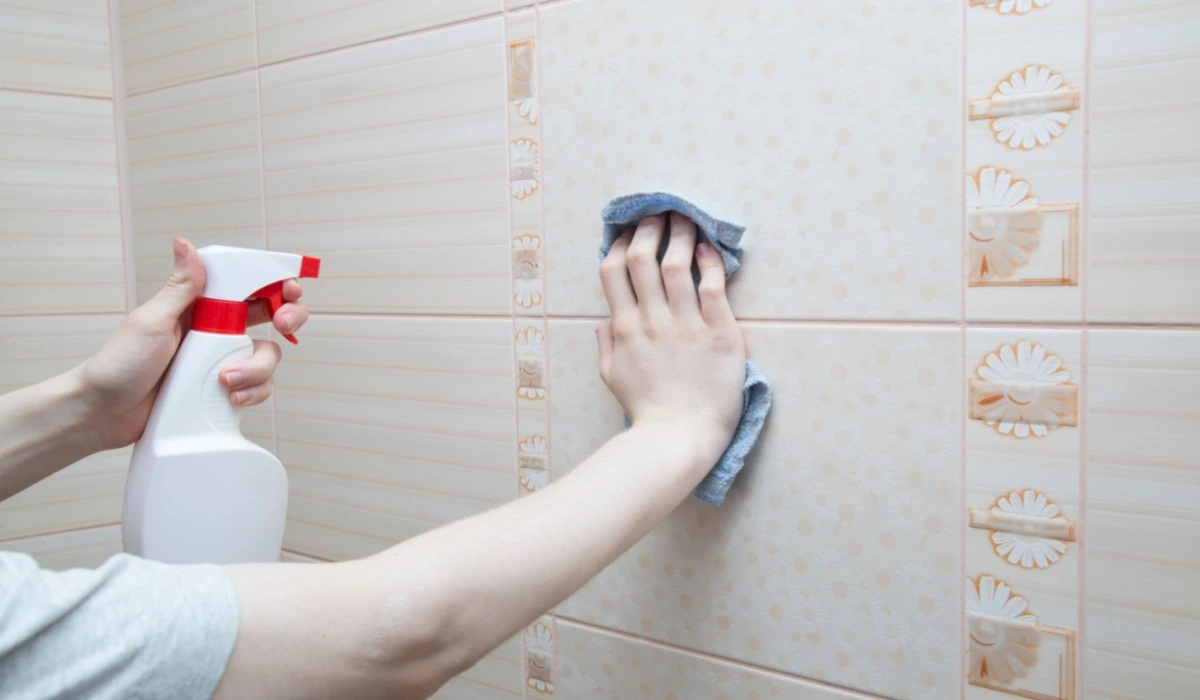
How to Clean Bathroom Tiles: Easy and Effective Methods to Remove Stains and Grout
January 15, 2025
14929+ views
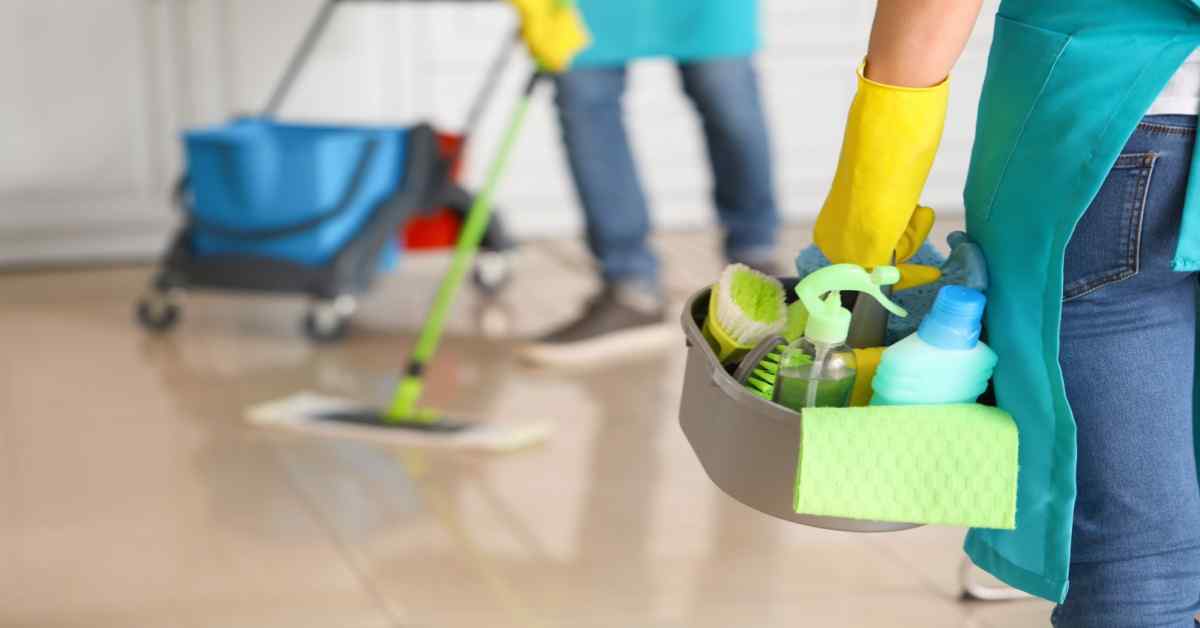
List of the Best Home Cleaning Apps: Book Home Cleaning Services for Daily and Deep Cleaning
January 31, 2025
14646+ views
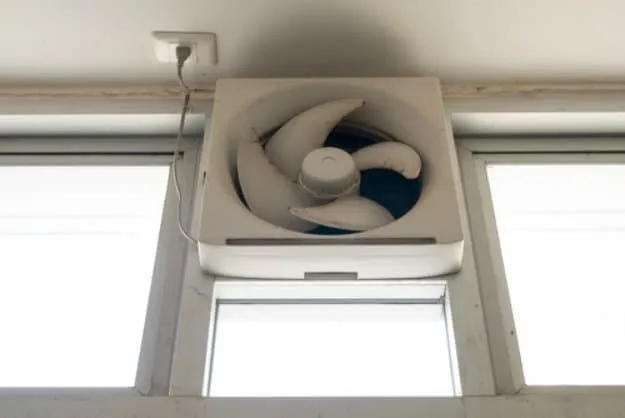
How to Clean Kitchen Exhaust Fan Properly: Tools, Process and DIY Solutions
January 15, 2025
12870+ views
Frequently Asked Questions
Ans: To remove rust from a cast iron stove top, you can create a paste of baking soda and water, apply it to the rust spots, and let it sit for a few hours. Scrub gently with a non-metallic brush and rinse thoroughly. After cleaning, dry and season the stove top with cooking oil to prevent future rust.
Ans: Phosphoric acid is commonly used in rust removal chemicals because it converts rust into a water-soluble compound that can be easily washed away. Commercial rust removers often contain this acid; always follow the manufacturer’s instructions and safety guidelines when using chemicals.
Ans: White vinegar is a good option for effective rust removal from metal. Soak the metal item in vinegar overnight, and then use a brush to scrape off the loosened rust. For stubborn rust, repeating the process or using a rust remover may be necessary.
Ans: A natural method to clean iron rust is to use a mixture of lemon juice and salt. Apply the mixture to the rust, let it sit for a couple of hours, and then scrub it off with a brush. The acidity in the lemon juice helps to dissolve the rust.
Ans: To remove rust without harming the iron, use a mild abrasive like baking soda or a potato cut in half dipped in dish soap or baking powder. Gently scrub the surface rust away, taking care not to be too harsh on the iron.
Loved what you read? Share it with others!
Recent blogs in
How To Deep Clean Apartment: Easy Tips to Keep Your Space Fresh and Hygienic in 2025
September 25, 2025 by Krishnanunni H M
How to Deep Clean Room: Easy Steps, Natural Solutions, Benefits and Cost in 2025
September 25, 2025 by Vivek Mishra
How To Deep Clean House: Faster and Effective Steps to Remove Grease, Dust and Germs in 2025
September 25, 2025 by Vivek Mishra
14 Easy Kitchen Cleaning Tips for a Fresh, Shiny and Hygienic Home in 2025
September 11, 2025 by Susan
Deep Clean Bathroom: 11 Easy Steps for a Fresh and Germ Free Space
September 11, 2025 by srivalli susarla







Join the conversation!